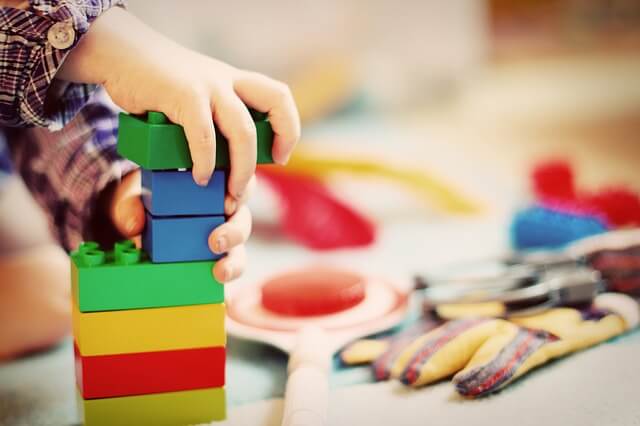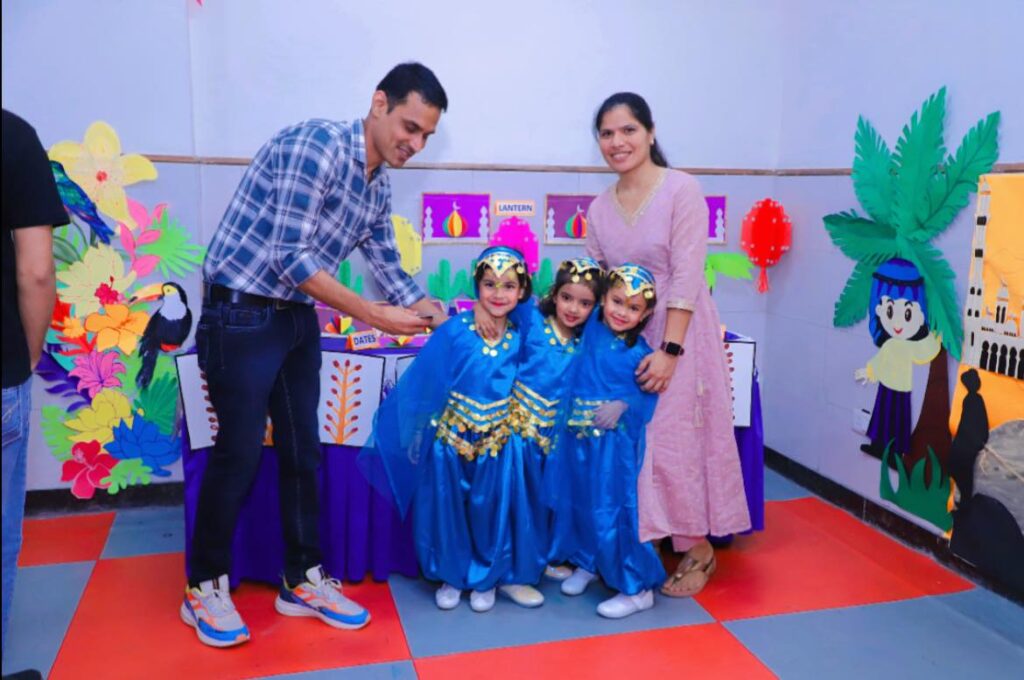
Helping young students build good habits is one of the most valuable gifts we can give them. At KIIT World Junior School we understand that children learn fast and whatever they practice every day becomes a part of their personality. Habits like being organized, staying focused, completing work on time keeping things clean, or following a simple daily routine may look small, but they create a strong base for future success. When these habits begin early, learning becomes easier, schoolwork feels lighter and children grow with confidence.

Most parents and teachers want children to behave responsibly and study well, but guiding a young mind requires patience. At KIIT World School Junior we believe that kids absorb habits not just through instructions but through the environment around them. That is why our approach focuses on building habits naturally through small steps, encouragement and consistent support rather than pushing children with pressure.
Young children are like soft clay. The way we shape them today will reflect in their learning, thinking,
and behavior tomorrow. Good habits introduce discipline in a child’s life without making them feel
pressured. When a child knows what to expect in a day, they feel more secure, more confident, and
more willing to learn.
A child who learns to pack their school bag every night, finish homework on time, or take
responsibility for small tasks grows into a student who is ready to handle bigger responsibilities later.
These habits create structure in their day and help them stay calm even when things get busy.

One of the best ways to develop habits is by adding simple routines to a child’s daily schedule. Young
students respond well to predictable patterns. For example, having a fixed time for waking up,
studying, playing, and sleeping gives them a sense of direction. When children follow a routine, they
don’t have to think too much about what to do next. This reduces confusion and keeps their mind
free for learning and creativity.
Parents can begin with small steps like creating a morning routine that includes brushing, getting
dressed, eating breakfast, and preparing for school. A similar evening routine can include light
playtime, homework, dinner and bedtime reading. Over time, these routines become automatic.
Children feel proud when they complete a task on their own. Giving small responsibilities helps them
build confidence and learn accountability. It also makes them more aware of their surroundings.
Simple activities such as arranging books, placing toys in their basket, setting their school uniform for
the next day, or helping with easy household tasks can make a big difference. These tasks show
children that they are capable and trusted.
When a child feels responsible, their attitude toward schoolwork also improves. They learn to stay
organized and manage time better, which are essential skills as they move to higher classes.
Good study habits grow faster when children have a peaceful and encouraging space to learn. A
dedicated study corner helps them associate that area with concentration and learning. The area
does not need to be fancy. A clean desk, comfortable chair, proper lighting and fewer distractions
are enough.
When children sit in the same place every day to read or complete homework, their mind naturally
shifts into study mode. Keeping stationery, books and supplies within reach also teaches them
neatness and helps them stay focused.
Parents can support this by sitting nearby while the child studies. Just being present gives the child
comfort and motivation.

Children grow beautifully when they feel appreciated. Praise encourages them to continue with good
habits. But instead of praising only achievements, appreciating effort makes a deeper impact. When
a child is trying their best, even if the results are not perfect, acknowledging that effort motivates
them.
Simple sentences like I am proud that you tried, You worked hard today, or I noticed you kept
your study table clean encourage children to repeat the habit. This kind of positive reinforcement
builds confidence and teaches them that progress matters more than perfection.
Good habits don’t mean constant studying or strict routines. Young students need a balance of
learning, rest, and play. Without breaks, children can feel overwhelmed. Short breaks during
homework or study time help refresh their mind and improve concentration.
Activities like drawing, light stretching, playing outside for a few minutes, or simply relaxing can help
children regain energy. A balanced day teaches them how to manage time and avoid stress.
Young minds respond better to gentle reminders rather than strict instructions. Instead of saying Do
your homework now, try saying Let’s finish homework before playtime so you’ll have more free time later. This makes the task feel cooperative rather than forced.
Visual reminders also help. Parents can use a colourful routine chart, stickers, or simple timers to
guide the child. These tools make habit-building fun and playful.

Good habits take time. The goal is to guide the child gently and consistently. Instead of expecting
sudden change, start with one habit at a time. Once the child becomes comfortable with it, introduce
the next one. This step-by-step method reduces pressure and increases success.
Celebrate small achievements. If the child packs their bag without help for the first time, appreciate
it. If they complete homework on time for a week, celebrate it. These small celebrations make
children feel valued and encourage them to continue.
Building good habits in young students is not a one-day task. It is a journey that grows with patience,
love, and daily practice. When children learn discipline, organization, and responsibility early, they
carry these habits into every stage of life. With supportive parents, caring teachers, and a positive
environment, young students can develop habits that shape them into confident, responsible and
joyful learners.